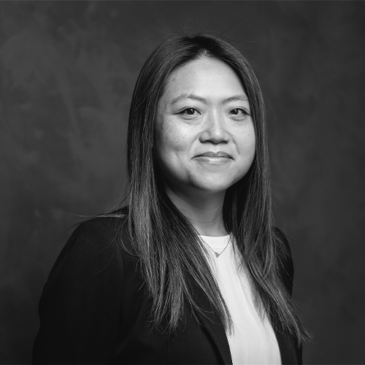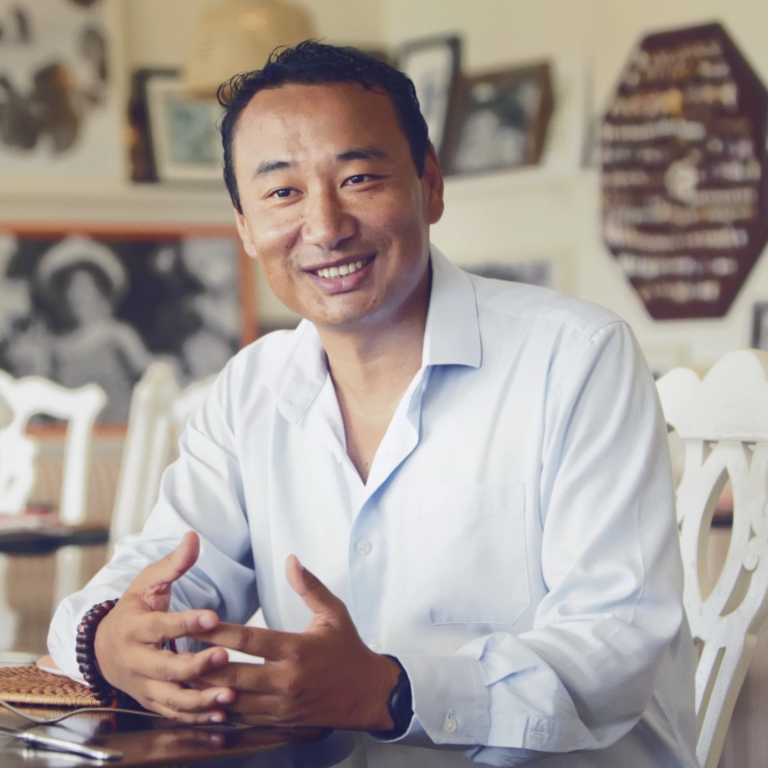Chris Anderson is a professor at the Cornell Nolan School of Hotel Administration. Prior to his appointment in 2006, he was on the faculty at the Ivey School of Business in London, Ontario, Canada. Professor Anderson’s main research focus is on revenue management and service pricing. He actively works in the application and development of revenue management across numerous industry types, including hotels, airlines, and rental car and tour companies, as well as numerous consumer packaged goods and financial services firms. Professor Anderson’s research has been funded by numerous governmental agencies and industrial partners. He serves on the editorial board of the Journal of Revenue and Pricing Management and is the regional editor for the International Journal of Revenue Management. At the Nolan School of Hotel Administration, Professor Anderson teaches courses in revenue management and service operations management.

Restaurant Distribution StrategyCornell Certificate Program
Overview and Courses
As the restaurant industry adapts to new customer demands and market conditions, the rise in digital technologies and the convenience they foster has led to significant changes in the way restaurants distribute their products and manage their brands. Increasingly, restaurant operators are turning to the addition of distribution channels to stay competitive and efficiently recognize and address gaps in their offerings.
Distribution channels describe how a product gets from the operation or producer to the consumer. The most common distribution formats for restaurants have traditionally been takeout, delivery, and catering, but advancements in technologies have expanded these models and even added others, like ghost and virtual kitchens. Other options that have become more popular for restaurants are gift baskets and subscriptions, wholesale and consumer packaged goods, and off-premise concepts. Faced with this kind of variety, operators need to critically consider whether or not to adopt a given distribution channel into their business strategy and understand how that format will impact its operational and strategic goals.
In this certificate program, you will analyze modern restaurant-customer interaction and evaluate new opportunities afforded by digital technologies such as online ordering, reservations, and customer ratings sites and other user-generated content. You will also identify the motivations and trends behind changing customer expectations and assess the business fit of different distribution formats for a particular operation. To further explore how the addition of a distribution channel could impact the operational aspects of a restaurant, you will evaluate the role menu design and floor plan layout play in the implementation of a new strategy. Finally, you will turn back to your customers and evaluate how you could use your strategies to build and enhance customer loyalty. By the end of the program, you will be able to assess the strategic and operational opportunities and costs of adopting a new distribution strategy.
The courses in this certificate program are required to be completed in the order that they appear.
Course list
We are witnessing a revolution in the restaurant industry, with accelerated innovation and the adoption of digital platforms and applications.
Accessing your restaurant from the palm of their hand is more than just a nice-to-have convenience for your customer; it is an avenue for your restaurant to access new and exciting opportunities that will help you improve the customer experience, increase operational efficiency, reduce costs, unlock new customer segments, and become a leader in your local market. Yet these opportunities are not free, and their costs must be evaluated and weighed so that you can mitigate risks and maximize your potential. As a restaurateur, it is critical that you understand the evolving landscape and are equipped with the skills to adapt to changing expectations as well as the ability to efficiently evaluate arising opportunities.
In this course, you will analyze restaurant distribution innovations and assess their potential impact on your business. You will then evaluate digital opportunities to help your restaurant drive high-yielding direct business.
- Feb 4, 2026
- May 27, 2026
- Sep 16, 2026
The restaurant industry is a complex and constantly evolving field that requires a knowledge of current trends, consumer behavior, and industry players. With the reliance on digital technology and consumer demand for convenience, adding a distribution channel to meet changing customer expectations has become a critical concern for many restaurant operators.
Distribution channels broadly describe how a product gets from the operation or producer to the consumer. The most common distribution formats for restaurants have traditionally been takeout, delivery, and catering, but the rise of digital technologies have expanded these models and even added others, like ghost and virtual kitchens. Faced with this kind of variety, operators need to critically consider whether or not to adopt a given distribution channel into their business strategy and understand how that format will impact its operational and strategic goals.
In this course, you will explore the strategic considerations an operator needs to be aware of before adopting a new distribution strategy, including how that format fits into the existing brand and its long-term goals. You will outline the target customer base for an operation and consider how trends impact customer engagement. You will then consider and discuss how a shift in distribution strategy impacted the brand value, perception, and customer satisfaction of a particular operation. Finally, you will analyze a distribution channel and its business fit for a specific operation. By the end of the course, you will have experience evaluating a distribution strategy's fit for both the operation and the overall brand.
You are required to have completed the following course or have equivalent experience before taking this course:
- Assessing Restaurant Distribution in the Digital World
- Feb 18, 2026
- Jun 10, 2026
- Sep 30, 2026
There are a host of distribution channels and strategies to choose from for any restaurant ready to expand. In addition to business fit, a key factor in deciding which channel to adopt is operational fit. Operators need to be able to assess how any expansion effort will impact the day-to-day workflow of the operation, from the existing menu and inventory to the capability of the kitchen and staff. I
n this course, you will explore the operational opportunities and costs of adopting a new distribution strategy, including how that addition fits with the operation's guest promise, capacity of equipment and staff, and purchasing capabilities. You will analyze a menu and determine its suitability for distribution. You will then break down a single menu item to explore what goes into making it, from the ingredients to the purchasing options to the possible customizations guests could request. You will also do a root cause analysis of inefficiencies you observe in an operation.
Finally, you will assess a floor plan and recommend an appropriate distribution strategy for the space that considers the building's location and other tenets, as well as the guest promise made by the existing restaurant. By the end of the course, you will have experience evaluating a distribution strategy's fit for both the operation and the overall brand and be able to offer recommendations for how to add a distribution strategy without compromising the guest promise.
You are required to have completed the following courses or have equivalent experience before taking this course:
- Assessing Restaurant Distribution in the Digital World
- Evaluating Restaurant Distribution Strategic Fit
- Mar 4, 2026
- Jun 24, 2026
- Oct 14, 2026
Loyal repeat customers are key to the success of any food and beverage operation. They represent recurring revenue and are a great source for feedback and gauging customer sentiment. They can also be your greatest evangelists, recommending you to friends and colleagues, even giving favorable online reviews.
Through careful design, meticulous attention to service processes, and a way to gauge customer sentiment, you can play to your team's strengths and identify opportunities for improving the guest experience to grow your business.
- Nov 12, 2025
- Dec 10, 2025
- Jan 7, 2026
- Jan 21, 2026
- Feb 4, 2026
- Feb 18, 2026
- Mar 4, 2026
Symposium sessions feature two days of live, highly interactive virtual Zoom sessions that will explore today’s most pressing topics. The Hospitality Symposium offers you a unique opportunity to engage in real-time conversations with peers and experts from the Cornell community and beyond. Using the context of your own experiences, you will take part in reflections and small-group discussions to build on the skills and knowledge you have gained from your courses.
Join us for the next Symposium, in which we’ll discuss how both day-to-day operations and strategic goal setting in the hospitality sector have rapidly evolved over the past two years, opening up new space for real-time conversations about the future of the industry. You will support your coursework by applying your knowledge and experiences to various areas of the industry, examining the innovations and accommodations you have all had to make throughout the COVID-19 pandemic and strategizing on future directions. By participating in relevant and engaging discussions, you will discover a variety of perspectives and build connections with your fellow participants from across the industry.
All sessions are held on Zoom.
Future dates are subject to change. You may participate in as many sessions as you wish. Attending Symposium sessions is not required to successfully complete any certificate program. Once enrolled in your courses, you will receive information about upcoming events. Accessibility accommodations will be available upon request.
How It Works
- View slide #1
- View slide #2
- View slide #3
- View slide #4
- View slide #5
- View slide #6
- View slide #7
- View slide #8
- View slide #9
Faculty Authors
- Military to Business in Project Management
- Military to Business in Marketing
- AI in Hospitality
- Restaurant Distribution Strategy
- Hospitality Professional Development Program
- General Managers Program
- Data Analytics in R
- Management 360
- Data Analytics 360
- Revenue Management 360
- Data Analytics
- Hospitality Management
- Advanced Hospitality Revenue Management: Pricing and Demand Strategies
Lilly Jan is a lecturer of food and beverage at Cornell’s School of Hotel Administration. She brings nearly 15 years of experience in hospitality and foodservice, having worked in restaurants, catering and events, retail, and television production. Prior to joining Cornell, Dr. Jan was the Director of Culinary Operations for Newbury College in Brookline, Massachusetts. She also served as a faculty member and academic advisor at Newbury College, creating and teaching a range of classes across culinary and hospitality management. Dr, Jan has also taught for Le Cordon Bleu and Boston University.
As a chef, product and recipe developer, and foodservice consultant, Dr. Jan has worked with a variety of food-based businesses, including a food truck, on-demand food delivery, food startup, and retail food stores. She specializes in operations management, focusing on ushering food business concepts to market.
A frequent speaker and media contact on food culture, cooking, and Chinese cuisine, Dr. Jan has been featured in print and radio outlets. She worked on TV production for America’s Test Kitchen and was a regular contributor for WGBH’s Boston Public Radio.
Dr. Jan is a two-time graduate of Boston University in Communications (B.Sc.) and Gastronomy (MLA). She earned her Ph.D. from Iowa State University in hospitality management with a focus on food allergy knowledge and training in ethnic restaurants. Dr. Jan’s research interests include workplace training and education in foodservice, career progression in foodservice, food safety and food allergy in restaurants, and culture and cuisine.
Alex Susskind is a Professor of Food and Beverage Management and is currently serving as the Associate Dean for Academic Affairs. Professor Susskind earned his Ph.D. in Communication from Michigan State University with a specialization in organizational communication and his MBA with a concentration in personnel and human relations. He earned his undergraduate degree at Purdue University in Restaurant, Hotel, and Institutional Management and is also a trained chef with a degree in Culinary Arts from The Culinary Institute of America in Hyde Park, New York. Prior to starting his career in academia, Professor Susskind was a chef and restaurant operator for both independent and multi-unit restaurant companies in the Northeastern and Southeastern United States.

Chris Anderson is a professor at the Cornell Nolan School of Hotel Administration. Prior to his appointment in 2006, he was on the faculty at the Ivey School of Business in London, Ontario, Canada. Professor Anderson’s main research focus is on revenue management and service pricing. He actively works in the application and development of revenue management across numerous industry types, including hotels, airlines, and rental car and tour companies, as well as numerous consumer packaged goods and financial services firms. Professor Anderson’s research has been funded by numerous governmental agencies and industrial partners. He serves on the editorial board of the Journal of Revenue and Pricing Management and is the regional editor for the International Journal of Revenue Management. At the Nolan School of Hotel Administration, Professor Anderson teaches courses in revenue management and service operations management.
- Military to Business in Project Management
- Military to Business in Marketing
- AI in Hospitality
- Restaurant Distribution Strategy
- Hospitality Professional Development Program
- General Managers Program
- Data Analytics in R
- Management 360
- Data Analytics 360
- Revenue Management 360
- Data Analytics
- Hospitality Management
- Advanced Hospitality Revenue Management: Pricing and Demand Strategies

Lilly Jan is a lecturer of food and beverage at Cornell’s School of Hotel Administration. She brings nearly 15 years of experience in hospitality and foodservice, having worked in restaurants, catering and events, retail, and television production. Prior to joining Cornell, Dr. Jan was the Director of Culinary Operations for Newbury College in Brookline, Massachusetts. She also served as a faculty member and academic advisor at Newbury College, creating and teaching a range of classes across culinary and hospitality management. Dr, Jan has also taught for Le Cordon Bleu and Boston University.
As a chef, product and recipe developer, and foodservice consultant, Dr. Jan has worked with a variety of food-based businesses, including a food truck, on-demand food delivery, food startup, and retail food stores. She specializes in operations management, focusing on ushering food business concepts to market.
A frequent speaker and media contact on food culture, cooking, and Chinese cuisine, Dr. Jan has been featured in print and radio outlets. She worked on TV production for America’s Test Kitchen and was a regular contributor for WGBH’s Boston Public Radio.
Dr. Jan is a two-time graduate of Boston University in Communications (B.Sc.) and Gastronomy (MLA). She earned her Ph.D. from Iowa State University in hospitality management with a focus on food allergy knowledge and training in ethnic restaurants. Dr. Jan’s research interests include workplace training and education in foodservice, career progression in foodservice, food safety and food allergy in restaurants, and culture and cuisine.

Alex Susskind is a Professor of Food and Beverage Management and is currently serving as the Associate Dean for Academic Affairs. Professor Susskind earned his Ph.D. in Communication from Michigan State University with a specialization in organizational communication and his MBA with a concentration in personnel and human relations. He earned his undergraduate degree at Purdue University in Restaurant, Hotel, and Institutional Management and is also a trained chef with a degree in Culinary Arts from The Culinary Institute of America in Hyde Park, New York. Prior to starting his career in academia, Professor Susskind was a chef and restaurant operator for both independent and multi-unit restaurant companies in the Northeastern and Southeastern United States.
- View slide #1
- View slide #2
- View slide #3
Key Course Takeaways
- Analyze modern restaurant-customer interaction innovations to determine their impact on your business
- Evaluate digital opportunities to drive high-yield, direct business
- Assess distribution formats to find the right business fit for an operation
- Explore the operational opportunities and costs of adopting a new distribution strategy


JOIN A HOSPITALITY SYMPOSIUM!
Download a Brochure
Not ready to enroll but want to learn more? Download the certificate brochure to review program details.

What You'll Earn
- Restaurant Distribution Strategy Certificate from Cornell’s Nolan School of Hotel Administration
- 40 Professional Development Hours (4 CEUs)
Watch the Video
Who Should Enroll
- Restaurant operators and managers
- Restaurant and hotel franchisees and franchisors
- Managers of hotels with full-service restaurants or grab-and-go offerings
- Analysts at large foodservice chain organizations
- Grocery store and CPG managers
Request Information Now by completing the form below.

Restaurant Distribution Strategy
| Select Payment Method | Cost |
|---|---|
| $2,999 | |
